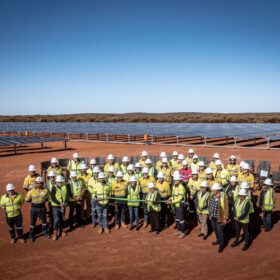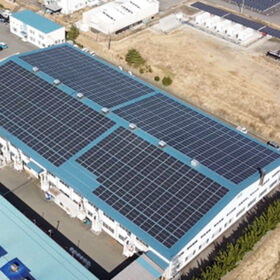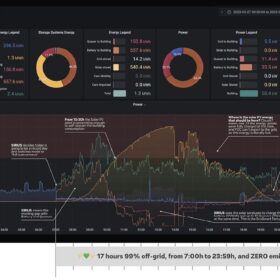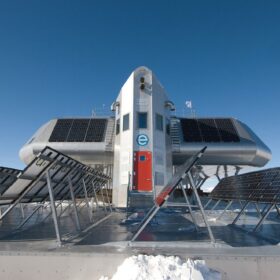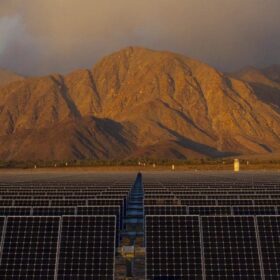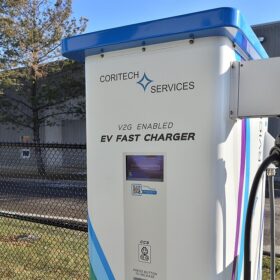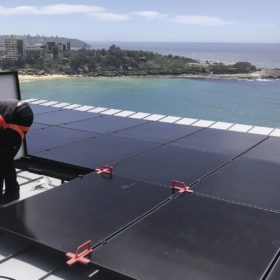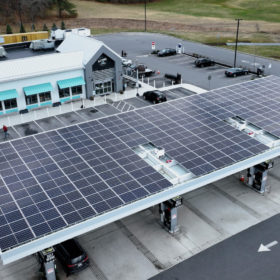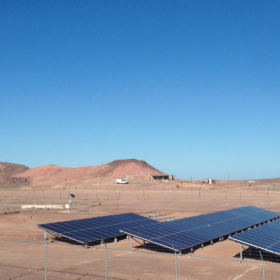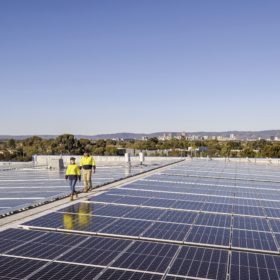Pacific flicks switch on 6 MW solar farm as hybrid plant powers up
Australian renewables company Pacific Energy has powered up the first of four solar-fuelled hybrid power plants being rolled out at Westgold Resources’ mining operations in Western Australia.
Kaneka, Itochu switch on solar microgrid at industrial park in Japan
Kaneka and Itochu have switched on a solar microgrid in Japan. It is powered exclusively by 2.2 MW of PV and 6 MWh of storage capacity. It will sell power to the eight companies operating at the site via a power purchase agreement.
Weekend Read: It’s time to get Sirius
In a bid to avoid costly grid augmentation, Spanish electric vehicle (EV) charger supplier Wallbox has designed a multi-layered energy intelligence solution – proving that necessity is the mother of invention.
Weekend Read: The world’s coolest solar
The world’s most efficient energy network, at an Antarctic research base, has had a solar upgrade.
Solar-plus-storage microgrids minimize power shutoffs during wildfires
Lawrence Berkeley National Laboratory researchers have shown that microgrids equipped with solar-plus-storage systems can maintain an average levelized cost of energy (LCOE) below $0.30/kWh and limit annual public safety power shutoffs to 2% to 3% of annual energy demand.
Adaptive control of V2Gs incorporating EV owner expectations
Australian researchers have developed a novel adaptive decentralized control strategy for electric vehicle (EV) integration, incorporating both microgrid and EV-side conditions into the primary frequency control. They have proposed new indices to evaluate the charge and discharge capabilities of EV batteries, as well as the satisfaction levels of EV owners.
Making the business case for solar-plus-storage
Much has been said about the benefits installing solar and batteries can offer to businesses but, as companies face mounting input cost inflation, is the upfront investment too much to bear or have volatile electricity costs made the decision a no-brainer?
Growing US microgrid market hits 10 GW in 2022
Wood Mackenzie estimates that the US microgrid market has seen a 47% increase in solar and storage capacity in 2022 compared to 2017 levels, driven by rising demand for uninterrupted services, military resilience plans, and corporate environmental, social, and corporate governance (ESG) goals.
Power-to-gas-to-power designs to incorporate hydrogen in solar-wind microgrids
Researchers in Mexico have looked at integrating hydrogen-based power-to-gas-to-power into an existing rural microgrid. They said this solution could become competitive if electrolyzer, fuel cell and hydrogen tank costs are halved, or if diesel prices keep rising.
The weekend read: Powerful equation to expand C&I solar
Big rooftop PV systems on factories, warehouses and public buildings need not be limited by ownership issues nor local grid capacity, claims Australian innovator EleXsys Energy. The company is maxing out an Ikea in Adelaide, Australia, with solar and storage. And it claims its smart technology can allow the same to be done elsewhere.
